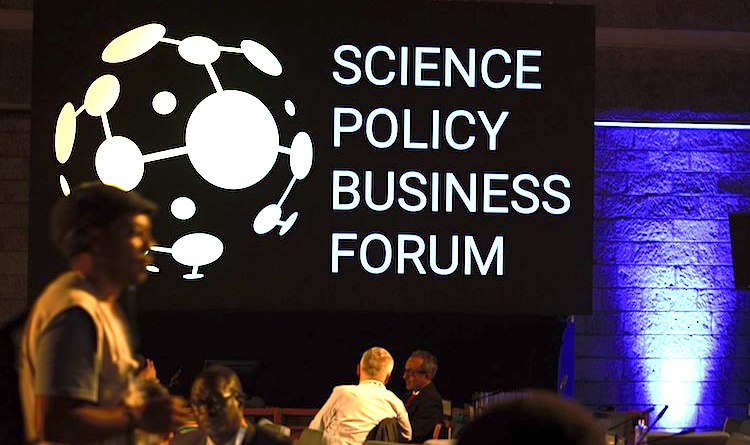By J Nastranis
NEW YORK | NAIROBI (IDN) – Eminent scientists, Nobel laureates, artists, ministers, parliamentarians, industry and business leaders, young game changers in the science and business communities, heads of United Nations entities and civil society representatives participated in the UN Science-Policy-Business Forum on the Environment at the UN Headquarters in Nairobi from March 8-10, 2019 in the lead up to the Fourth Session of the UN Environment Assembly (UNEA 4).
Recommendations from the Forum will inform the UN Environment Assembly from March 11-15, and the UN’s work on the Sustainable Development Goals (SDGs) and the Paris Agreement.
Launched at the UN Environment Assembly in December 2017, the UN Science-Policy-Business Forum on the Environment is a framework designed to catalyse a more dynamic interface between science, policy, business and society. It is designed as an accelerator and incubator of innovation and positive change towards green solutions to achieve the SDGs.
According to the UN Environment Programme (UNEP), the Forum promotes opportunities for green investment, driven by advances in science and technology, empowering policies and innovative financing. The Forum also encourages strengthening the evolving role of art and citizen science as well as creating the conditions to support and empower green technology startups.
This year’s Global Session of the Forum focused on the nexus of science, innovation and entrepreneurship for the environment, and covered the following five key streams:
1. Science for shaping green policies and market responses by providing a review of the latest recommendations from flagship environmental assessments released before the UN Environment Assembly, and discussions around the required policy responses and actions by the private sector and key stakeholders.
2. Foundation for a Global Digital Platform for the Planet – This stream built on the Forum’s Extraordinary session hosted by the French the National Centre for Space Studies (CNES) in Paris on October 18-19, 2018 at and organized in cooperation with the French National Research Institute for Sustainable Development (IRD), the French Alliance for Environmental Research (AllEnvi) and the Group on Earth Observations. Sessions covered the following key tracks: Opportunities offered by Artificial Intelligence and Machine Learning; Big Data, Earth observations and remote sensing, Governance, Equity and Ethics; Financing.
3.Changing discourse: Smarter, Greener Solutions for Cities – Considering that by 2050, 70 percent of the human population will live in cities, innovative technologies – from E-mobility to green buildings – need to be leveraged to maximize the efficient use of natural resources and encourage environmentally sound choices by all players across all sectors.
Green Technology Startup Hub – Startups are not only transforming markets and economic growth; some are helping save the planet. Venture capital investment in startups has surged to its highest level ever — $148 billion in 2018 alone. More than 40 Venture Capital-backed companies achieved billion-dollar valuations and joined the unicorn club.
The Forum’s pioneering programme to identify, communicate and shed light on the contributions of this fast-growing sector, will act as an accelerator and incubator of start-up innovation for the environment by examining the enabling policies and actions required to use such innovation to transform the world into greener and more sustainable living.
The Green Technology Startup Hub showcased some ground-breaking innovations for the planet presented by Startups from around the world with in-depth sessions focusing on specific projects, financing and the policy support required to mainstream solutions and to bridge the technology divide.
4. Innovative Solutions on Climate Challenge: Finance, Market and Non-State Actors – National pledges under the Paris Agreement will only bring a third of the reduction in emissions required by 2030 to meet climate targets, with private sector and sub-national action not increasing at a rate that would help close this worrying gap. This session, organized in cooperation with Green Climate Fund and Reuters Sustainability, examined means of harnessing the power of finance, market and non-state actors to fight climate change.
5. Healthy Food for a Sustainable Planet – Worldwide food production and consumption is higher than ever before, with detrimental impacts on human and planet health. Sessions examined:
Agricultural transformation – sustainable and climate-smart agricultural models minimizing impacts on pollution, with focus on the rice sector and others including livestock sector.
Nutrition and healthy diets – embracing difficult questions and debates about meat versus vegetarian diets, also considering biofortification, plant health, which benefits in turn human health.
Food waste – measuring and achieving food waste reduction at a global level.
“There is no doubt that rapid technological advancement played a major part in the troubles we face,” said Joyce Msuya, Acting Executive Director of UN Environment. “But it is that technology – through humanity’s ability to invent and innovate – that can help to save us. The Fourth Industrial Revolution offers a real opportunity to create cleaner, greener and more efficient solutions to sustainable development.”
Siim Kiisler, President of the UN Environment Assembly and Minister of Environment for Estonia, said: “We can’t ensure implementation of the 2030 Agenda without concrete data, which allows us to identify opportunities, ensure evidence-based decision making, direct investment and track progress.” [IDN-InDepthNews – 10 March 2019]
Image credit: Wikimedia Commons.
IDN is flagship agency of the International Press Syndicate.
facebook.com/IDN.GoingDeeper – twitter.com/InDepthNews
Send your comment: comment@indepthnews.colo.ba.be
Subscribe to IDN Newsletter: newsletter@indepthnews.colo.ba.be

